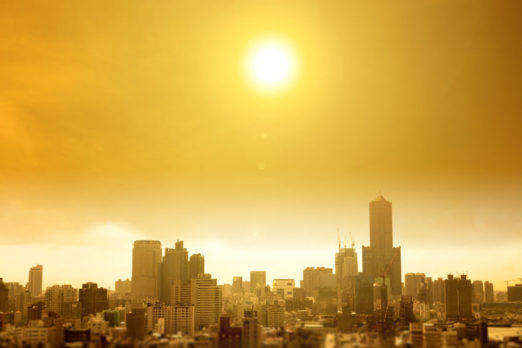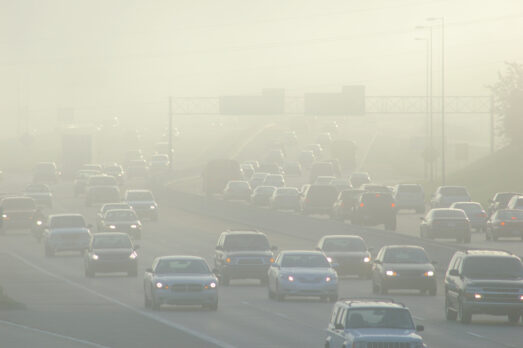
Extreme heat events are getting more frequent and more intense. Globally, heat kills more people than any other natural disaster. In fact, the last seven years have been the hottest on record. This summer alone, records are being shattered around the globe, even in more temperate regions like the U.K.
Human activities contributing to climate change are making “mega” heat waves more frequent, more intense, and last longer. Increasing levels of greenhouse gases are raising temperatures globally, leading to changing weather patterns that are expected to cause more extreme events such as flooding, heat waves, drought, and wildfires. Scientists suspect that the planet is as hot now as it’s ever been in at least the past 125,000 years.
A new scientific journal article predicts that heat waves will increase, affecting half a billion people every year, causing food shortages, deaths, and refugee flows when temperatures exceed human tolerance levels.
The “urban heat island effect” makes cities 2-8 degrees Fahrenheit warmer than their surrounding suburbs and rural areas. At night, when our bodies need to cool down to recuperate from a hot day, the difference can be even starker, with urban centers ranging as much as 22 degrees warmer than nearby rural areas.
Not only are cities hotter, but they are heating up at nearly twice the global average rate. Before the end of this century, two out of every three people will live in urban spaces where excess heat will play a critical role in their lives.
Larger cities have a ravenous appetite for energy, consuming two-thirds of the world’s energy and creating over 70% of global CO2 emissions. But these statistics belie the notion that cities can also be incubators for climate change solutions.
The most ambitious and innovative actions to reduce emissions and improve quality of life are happening at the urban level. The idea that humans are the problem with respect to the climate emergency has shifted slightly to a vision of people as problem solvers.
Smart, sustainable cities are the foundation for a low-carbon future and the most cost-effective solution to climate change, possibly even more so than renewable energy. Viewing cities as solutions that foster livability, sustainability, and innovation have laid a foundation for smart city innovation.
Cities encompass the largest and fastest-growing concentration of natural resource consumption and are a logical place to focus sustainability efforts in areas such as transportation, building emissions, energy efficiency, drinking water, air quality, infrastructure resiliency, and waste management.
Unfortunately, it seems more extreme heat is on the way, but the frequency and length of “mega” or extreme heat events will depend on how ambitiously we address global climate change. There is no single solution, but smart cities have the ability to help pave the way.
And in the meantime, stay safe and cool during the next heat wave with these tips.

Annual global bottled water consumption is estimated to have reached 118 billion gallons in 2023. That’s equivalent to 1 million…

The world is driving towards a new era of electric transportation. This is good news for fighting the climate crisis,…

The past few summers have been breaking heat records but winters are actually warming faster than summers in most of…